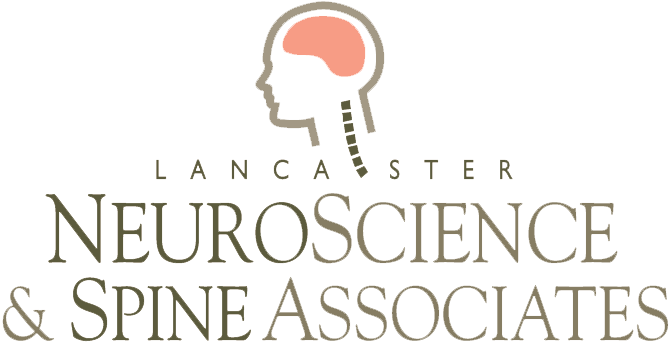Our Services: Other
Lancaster NeuroScience & Spine Associates
NeuroSurgery
Conditions
Procedures
Epilepsy and other Seizure Disorders
Intermittent derangement of consciousness, sometimes associated with convulsions, accompanies these conditions. Seizures can be due to congenital problems, or due to acquired factors, such as head injury or other causes leading to brain damage. In recent years, there has been a significant increase in the number of anti-seizure medications available. Seizure surgery has become a successful option in some cases.
Intermittent derangement of consciousness, sometimes associated with convulsions, accompanies these conditions. Seizures can be due to congenital problems, or due to acquired factors, such as head injury or other causes leading to brain damage. In recent years, there has been a significant increase in the number of anti-seizure medications available. Seizure surgery has become a successful option in some cases.
Epileptic Surgery
Patients with epilepsy refractory to medical therapy, whose seizure focus can be identified in the temporal lobe, can be surgically treated when indicated by removing the focus and origin of the seizures. The neurosurgeon works in conjunction with a neurologist through a team approach, optimal care is provided.
Patients with epilepsy refractory to medical therapy, whose seizure focus can be identified in the temporal lobe, can be surgically treated when indicated by removing the focus and origin of the seizures. The neurosurgeon works in conjunction with a neurologist through a team approach, optimal care is provided.
Parkinson’s Disease, Tremor, and other Movement Disorders
These conditions cause rigidity of the limbs, expressionless face, stooped posture, diminished movements, gait imbalance and falls, and tremor. Decline in memory, depression, diminished eye movements, etc., can also occur.
These conditions cause rigidity of the limbs, expressionless face, stooped posture, diminished movements, gait imbalance and falls, and tremor. Decline in memory, depression, diminished eye movements, etc., can also occur.
Surgical Treatment of Essential Tremor and Parkinsonian Tremor
Utilizing a frame-based stereotactic system, surgical treatments of tremor related to Parkinson’s disease and essential tremor are performed by planting a device to arrest tremor in patients that are refractory to medical therapy. Deep brain stimulator placement achieves excellent tremor control in the appropriate selected patients.
Utilizing a frame-based stereotactic system, surgical treatments of tremor related to Parkinson’s disease and essential tremor are performed by planting a device to arrest tremor in patients that are refractory to medical therapy. Deep brain stimulator placement achieves excellent tremor control in the appropriate selected patients.
Peripheral Nerve Injuries
As the nerves emerge from the spinal cord, they branch and join together to form what is called the peripheral nerves. These peripheral nerves go on to supply the muscles, as well as the sensation to the skin throughout the arms and legs. An injury to a peripheral nerve can cause severe weakness or loss of sensation along its course.
As the nerves emerge from the spinal cord, they branch and join together to form what is called the peripheral nerves. These peripheral nerves go on to supply the muscles, as well as the sensation to the skin throughout the arms and legs. An injury to a peripheral nerve can cause severe weakness or loss of sensation along its course.
Peripheral Nerve Decompression
Entrapment syndromes cause both pain and neurologic injury. Peripheral nerve decompressions are performed to release pressure on the affected nerve in the peripheral nervous system. Common procedures in this category include carpal tunnel releases and ulnar nerve decompression.
Entrapment syndromes cause both pain and neurologic injury. Peripheral nerve decompressions are performed to release pressure on the affected nerve in the peripheral nervous system. Common procedures in this category include carpal tunnel releases and ulnar nerve decompression.
Entrapment Neuropathies
If a peripheral nerve is pinched along its course, various symptoms may occur. There are many different nerves that are at risk to be pinched or “entrapped.” These symptoms depend on which nerve it is that is being pinched. In general, the symptoms from an entrapment neuropathy include numbness, tingling, weakness, or even loss of muscle in extreme cases. One typical example of entrapment neuropathy is carpal tunnel syndrome, which is an entrapment of the median nerve at the wrist.
If a peripheral nerve is pinched along its course, various symptoms may occur. There are many different nerves that are at risk to be pinched or “entrapped.” These symptoms depend on which nerve it is that is being pinched. In general, the symptoms from an entrapment neuropathy include numbness, tingling, weakness, or even loss of muscle in extreme cases. One typical example of entrapment neuropathy is carpal tunnel syndrome, which is an entrapment of the median nerve at the wrist.
Peripheral Nerve Decompression
Entrapment syndromes cause both pain and neurologic injury. Peripheral nerve decompressions are performed to release pressure on the affected nerve in the peripheral nervous system. Common procedures in this category include carpal tunnel releases and ulnar nerve decompression.
Entrapment syndromes cause both pain and neurologic injury. Peripheral nerve decompressions are performed to release pressure on the affected nerve in the peripheral nervous system. Common procedures in this category include carpal tunnel releases and ulnar nerve decompression.
Physiatry
Conditions
Procedures
For more information on any of the conditions and procedures listed above, please explore these Health Resource links




